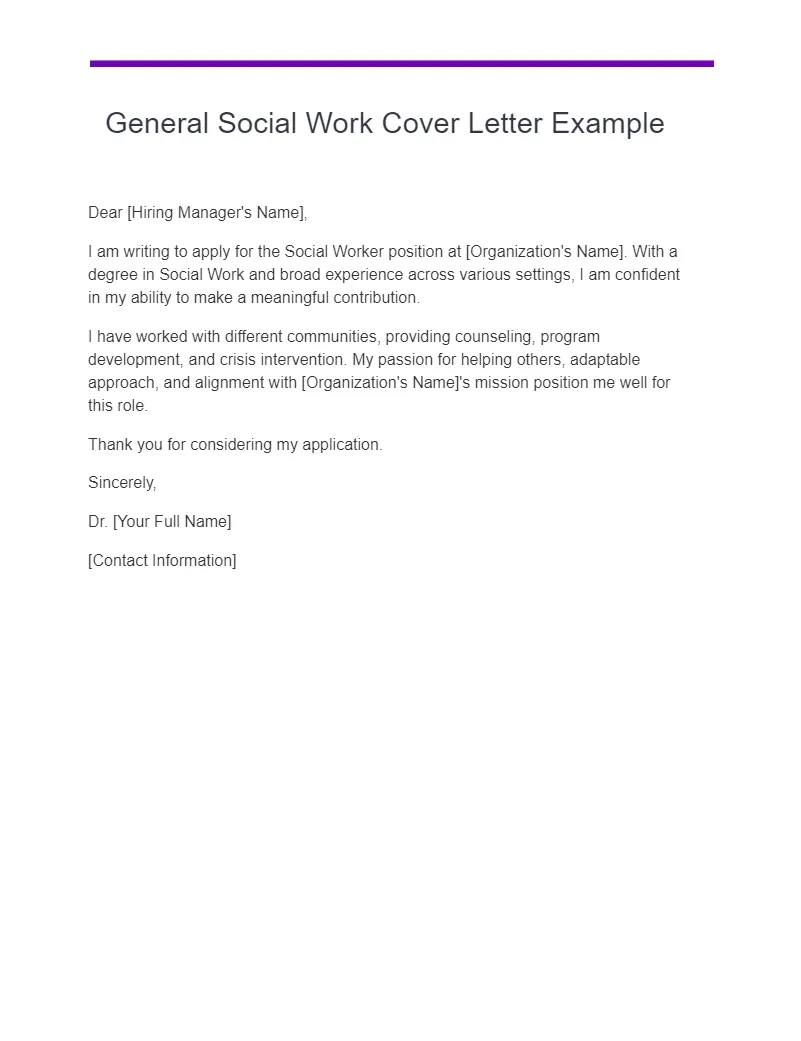Unveiling Social Work Cover Letter Secrets
Landing your dream social work job starts with a compelling cover letter. A well-crafted cover letter is not just a formality; it’s your first opportunity to make a strong impression on potential employers. It’s where you showcase your passion, skills, and experience in a way that a resume alone cannot. This guide unlocks the secrets to writing a cover letter that grabs attention, highlights your qualifications, and ultimately, gets you hired. Mastering the art of the social work cover letter is crucial for setting yourself apart from other applicants and demonstrating why you are the ideal candidate for the position.
Highlighting Your Qualifications
Your cover letter is a showcase of your qualifications. This is where you translate your skills and experience into a compelling narrative. Begin by carefully reviewing the job description and identifying the key requirements. Then, strategically weave your qualifications into your letter, providing specific examples of how you meet each requirement. Quantify your accomplishments whenever possible. Instead of saying you ‘managed a caseload,’ state the number of clients you served and any positive outcomes achieved. Tailor your qualifications to the specific needs of the agency and the role. This demonstrates that you understand the position and have what it takes to succeed.
Education and Certifications
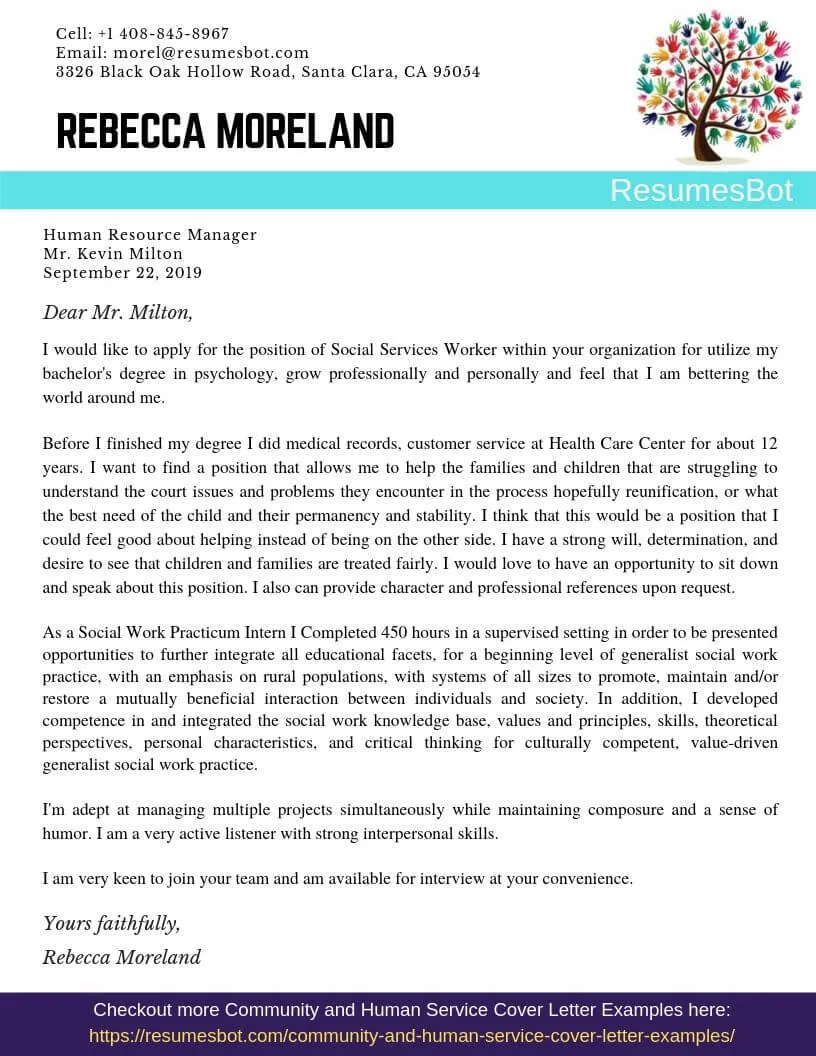
Education and certifications are fundamental to any social work position. In your cover letter, clearly state your degree, the institution you attended, and any relevant certifications you hold, such as a Licensed Clinical Social Worker (LCSW) or a Licensed Master Social Worker (LMSW). Specify your area of focus or specialization, like child welfare, mental health, or gerontology. Mention any honors, awards, or academic achievements that demonstrate your commitment to the field. Remember to include the dates of your education and the issuing dates of your certifications. This information immediately establishes your credibility and qualifications as a social work professional.
Relevant Experience
Highlight your relevant experience, focusing on roles that align with the job description. Provide concise but detailed descriptions of your responsibilities and achievements. Use action verbs to demonstrate your contributions and impact. For example, instead of saying ‘assisted clients,’ say ‘provided individual and group therapy to a caseload of 25 clients, resulting in a 70% reduction in reported symptoms of anxiety and depression.’ When discussing past positions, emphasize the skills you developed, the populations you served, and any successful outcomes achieved. Tailor the description of your experience to match the requirements listed in the job posting. Show how your experience makes you a strong fit for the position.
Showcasing Your Skills
Social work demands a unique combination of skills. While your experience is important, it’s your skill set that truly sets you apart. Focus on both hard and soft skills in your cover letter. Hard skills include specific therapeutic techniques, case management, and knowledge of relevant laws and regulations. Soft skills, on the other hand, encompass your interpersonal abilities, such as communication, empathy, and problem-solving. The ability to demonstrate these skills through concrete examples is key. Select a few essential skills mentioned in the job description and illustrate how you have successfully utilized them in previous roles. This will make your cover letter much more impactful.
Empathy and Communication Skills
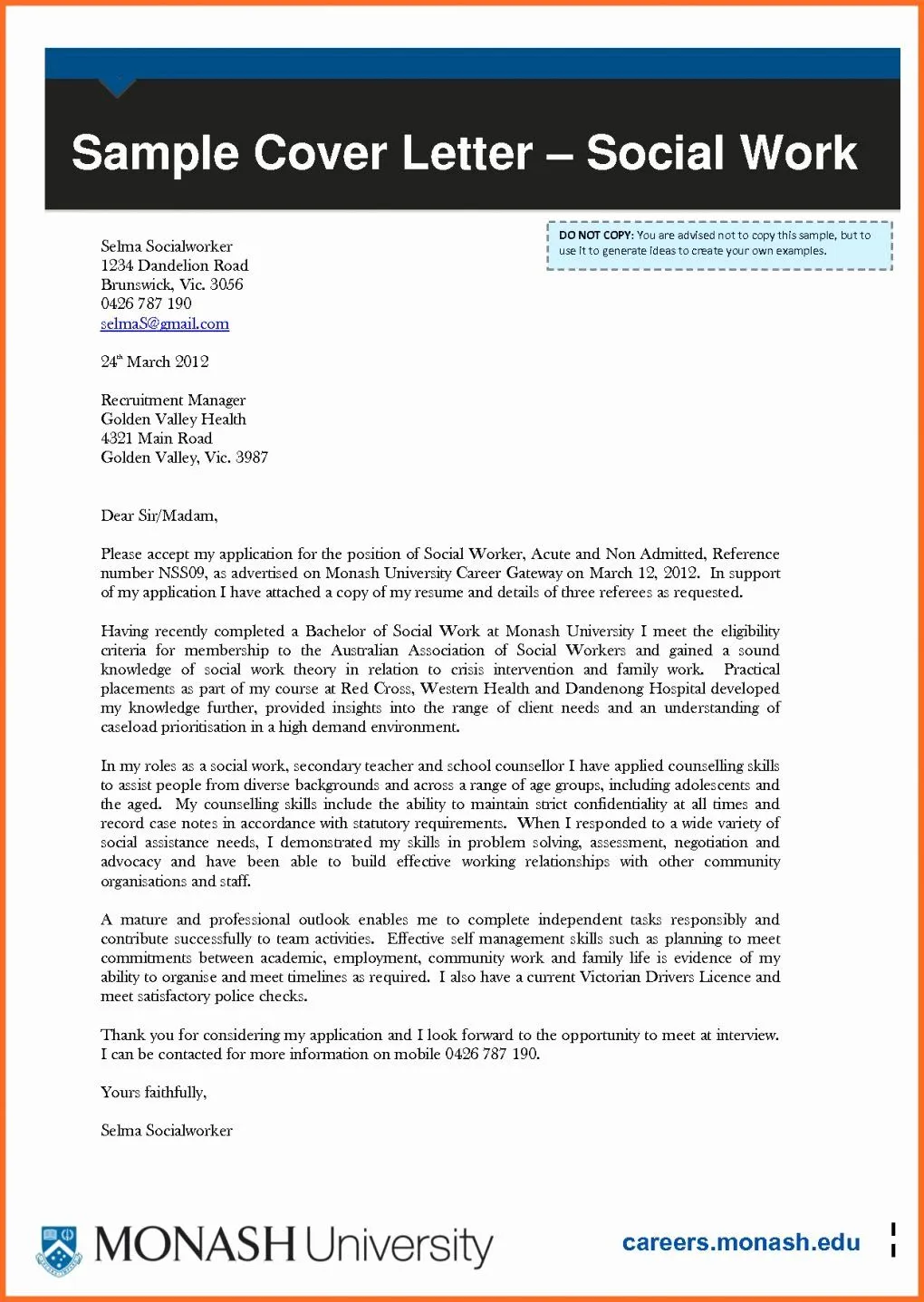
Empathy and communication are crucial in social work. Display your ability to understand and share the feelings of others. Illustrate instances where you effectively communicated with clients, families, or other professionals. Give an example where you navigated difficult conversations or resolved conflicts through effective communication. Emphasize your active listening skills, and ability to build rapport. Communication encompasses both verbal and written forms, therefore, show your ability to write clear, concise, and professional reports, assessments, and case notes. By highlighting these skills with real-life examples, you show the hiring manager that you can connect with clients and work effectively as part of a team.
Problem-Solving and Critical Thinking
Social workers frequently encounter complex situations requiring strong problem-solving and critical thinking skills. In your cover letter, share examples of how you have successfully analyzed difficult situations, identified the root causes of problems, and developed effective solutions. Describe your ability to assess client needs, develop treatment plans, and evaluate the effectiveness of interventions. Mention any experience in crisis intervention, conflict resolution, or advocacy. Demonstrate your capacity to think critically, consider multiple perspectives, and make sound judgments under pressure. Highlighting your problem-solving abilities demonstrates your ability to provide high-quality care and achieve positive outcomes for clients.
Understanding the Role and Agency
Demonstrating your understanding of the role and the agency is essential. This shows that you’ve done your research and are genuinely interested in the opportunity. Carefully review the job description and identify the key responsibilities and expectations of the position. In your cover letter, specifically address how your skills and experience align with these requirements. Also, research the agency’s mission, values, and programs. This will help you tailor your letter to the agency’s specific needs and demonstrate your understanding of their work. Tailoring your letter to the agency shows your genuine interest and commitment, making you a more attractive candidate.
Researching the Agency’s Mission
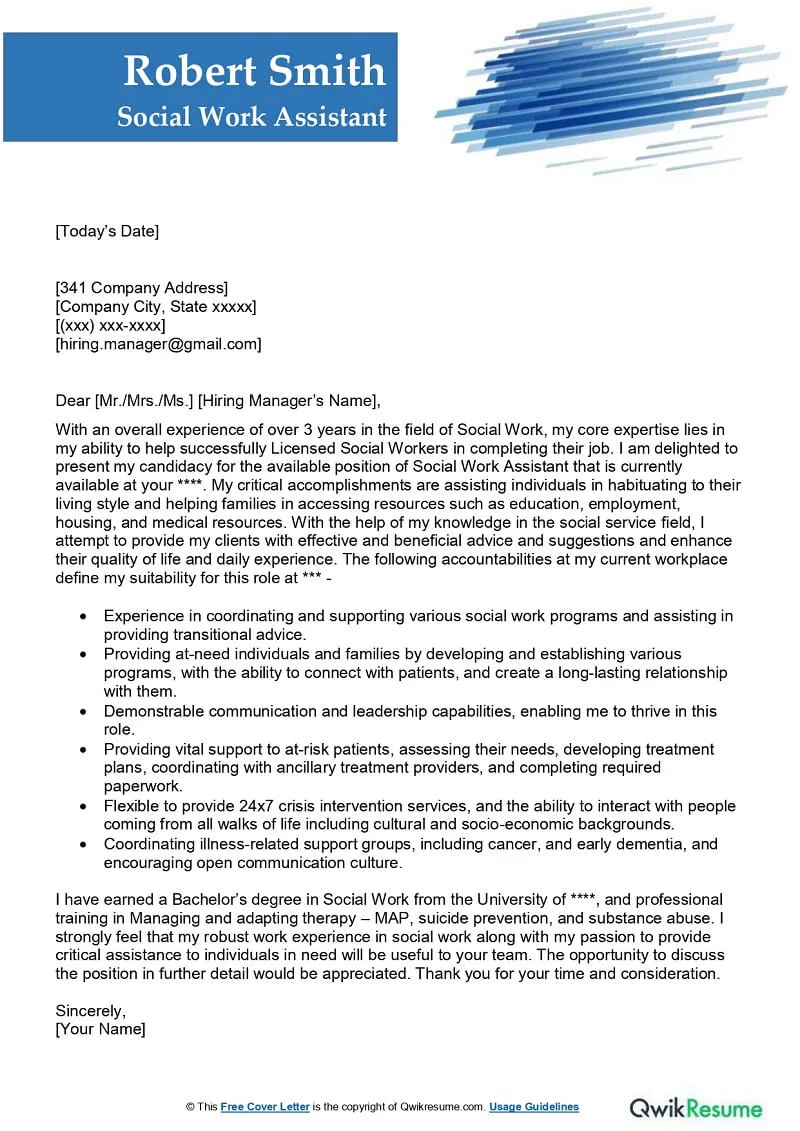
Before submitting your cover letter, thoroughly research the agency. Visit their website, read their mission statement, and review their services and programs. Understand the populations they serve, their values, and their approach to social work. If possible, look for any recent news or initiatives the agency has undertaken. In your cover letter, mention the agency’s mission and how your values align with theirs. This demonstrates that you are genuinely interested in the agency and its work, not just any job. Also, consider mentioning any specific programs or services offered by the agency that resonate with your interests or expertise. This will show the employer that you are a good fit for the agency and that you understand their goals.
Tailoring Your Letter
Generic cover letters rarely impress hiring managers. Tailoring your letter to each specific job application is essential. Avoid using a standard template and instead, customize your letter to reflect the specific requirements and expectations of the position. Begin by reviewing the job description and identifying the key skills and experience the employer is seeking. Then, modify your letter to highlight your qualifications and accomplishments that directly address those requirements. Mention the agency and its mission and illustrate how your values align with theirs. This level of customization shows that you’ve put in the effort to understand the opportunity and are genuinely interested in the position, making you a more attractive candidate.
Key Elements of a Strong Cover Letter
A strong cover letter is well-structured, clear, and concise. It should include several key elements, which are essential for making a positive first impression. Use a professional format with a clear heading, including your contact information and the date. Address the hiring manager by name if possible. Use a formal and respectful tone throughout the letter. It is also important to demonstrate your enthusiasm for the position and the agency. The structure of your cover letter is as important as the content. An organized letter will make it easier for the hiring manager to understand your qualifications and assess your suitability for the job. Following a standard structure improves readability and increases your chances of getting noticed.
Opening Statement
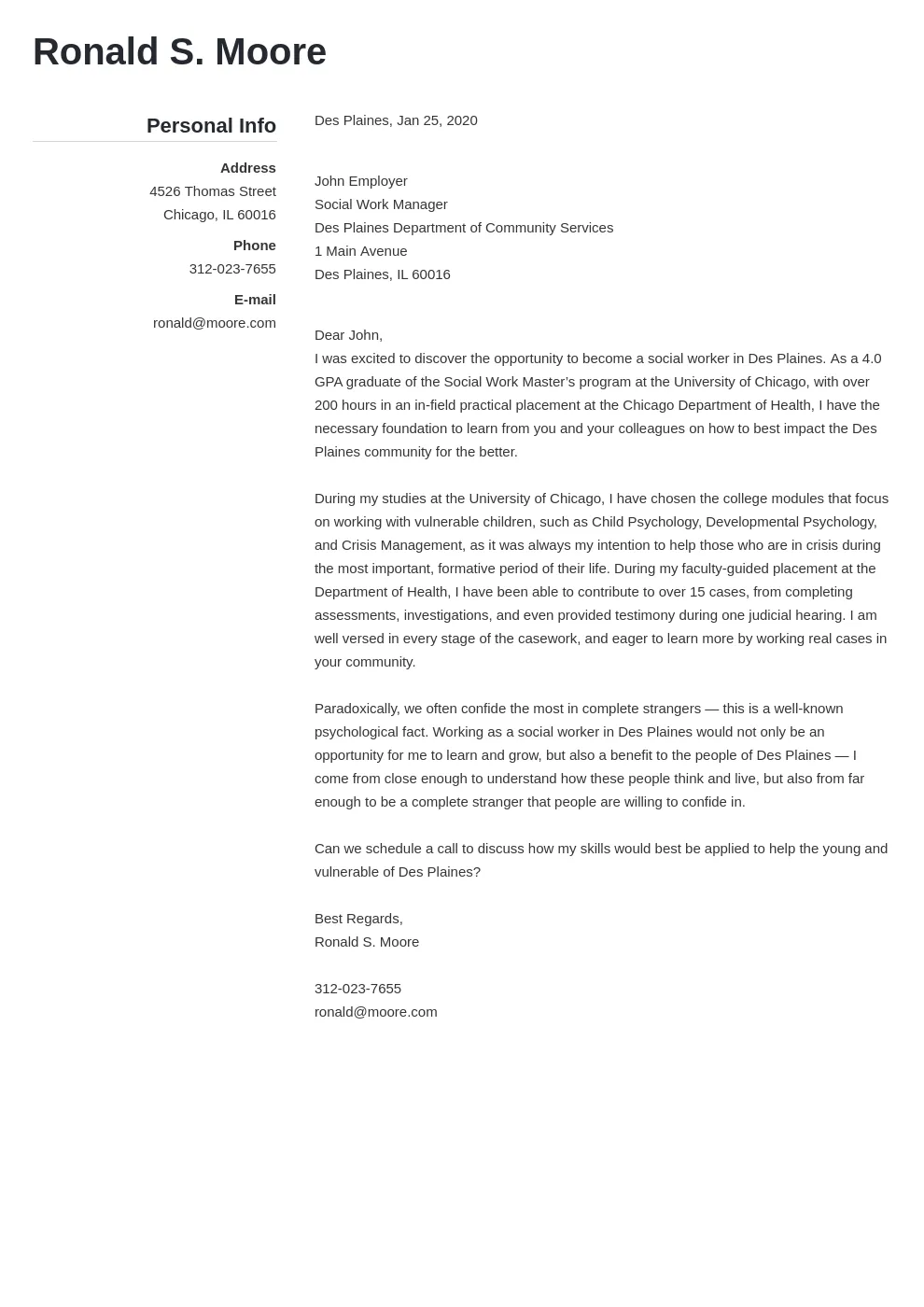
The opening statement is your chance to grab the reader’s attention and make a strong first impression. Start with a compelling hook that showcases your enthusiasm for the position and the agency. In your first paragraph, clearly state the position you are applying for and how you learned about the opportunity. Briefly mention your key qualifications and why you are a strong fit for the role. Avoid generic phrases like ‘I am writing to express my interest…’ Instead, try something more engaging, such as ‘I am eager to apply for the Social Worker position…’ This will capture the reader’s attention and encourage them to continue reading. Your opening statement should make the reader want to learn more about you and your qualifications.
Body Paragraphs
The body paragraphs are the meat of your cover letter, where you showcase your skills, experience, and qualifications in detail. Use the body paragraphs to provide specific examples that demonstrate your abilities and accomplishments. Highlight your most relevant qualifications and tailor them to the requirements of the job description. Focus on the skills, experiences, and knowledge that are most relevant to the position. Quantify your achievements whenever possible. For example, state the number of clients you served, the positive outcomes you achieved, or the improvements you implemented. Structure your body paragraphs logically, using clear headings and bullet points to improve readability. Keep the tone professional and enthusiastic, and focus on your strengths and the value you can bring to the agency.
Call to Action
The call to action is your opportunity to encourage the hiring manager to take the next step. In your closing paragraph, reiterate your interest in the position and express your enthusiasm for the opportunity. Clearly state your availability for an interview and provide your contact information. Thank the hiring manager for their time and consideration. Be sure to use a professional closing, such as ‘Sincerely’ or ‘Respectfully’. A strong call to action will leave a positive impression on the hiring manager. Encourage them to contact you. This will help you move forward in the hiring process.
Proofreading and Editing
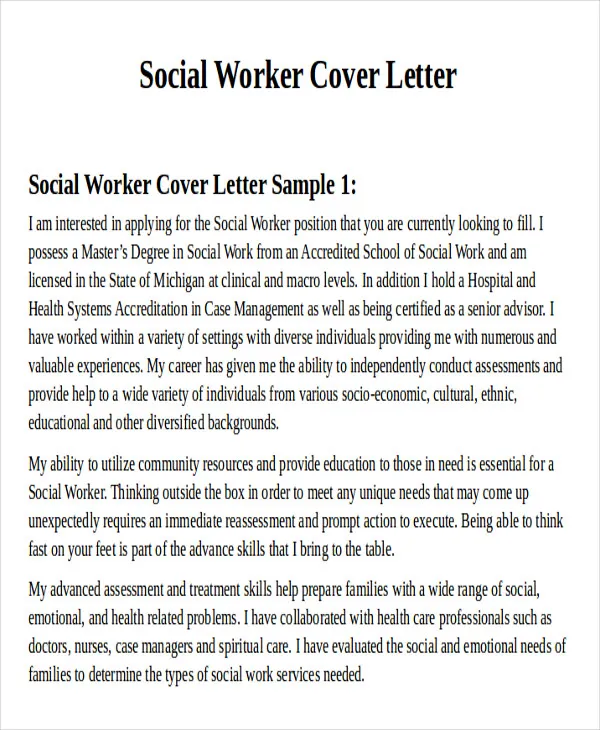
Before submitting your cover letter, proofread it carefully. Errors in grammar, spelling, and punctuation can create a negative impression. Double-check all the information in your letter. Verify the accuracy of the dates, names, and titles. Also, make sure that your cover letter is well-organized and easy to read. Have a friend or career counselor review your letter to check for any errors. Make sure that your writing style is clear, concise, and professional. Proofreading and editing ensure that your cover letter reflects your professionalism. This also helps you stand out as a detailed and organized candidate.
Common Mistakes to Avoid
Several common mistakes can undermine your chances of getting hired. Avoid using generic or outdated language. Do not simply copy and paste from a template without tailoring the content to the specific job. Also, avoid including irrelevant information that does not directly relate to the position. Ensure that you do not exaggerate your accomplishments or make false claims. Proofread your cover letter carefully to eliminate any errors in grammar, spelling, or punctuation. Negative language or criticism about past employers should not be included in the cover letter. Also, avoid sending a cover letter that is too long. A well-crafted cover letter should be concise and to the point. By avoiding these common mistakes, you increase your chances of creating a compelling cover letter that gets you hired.
